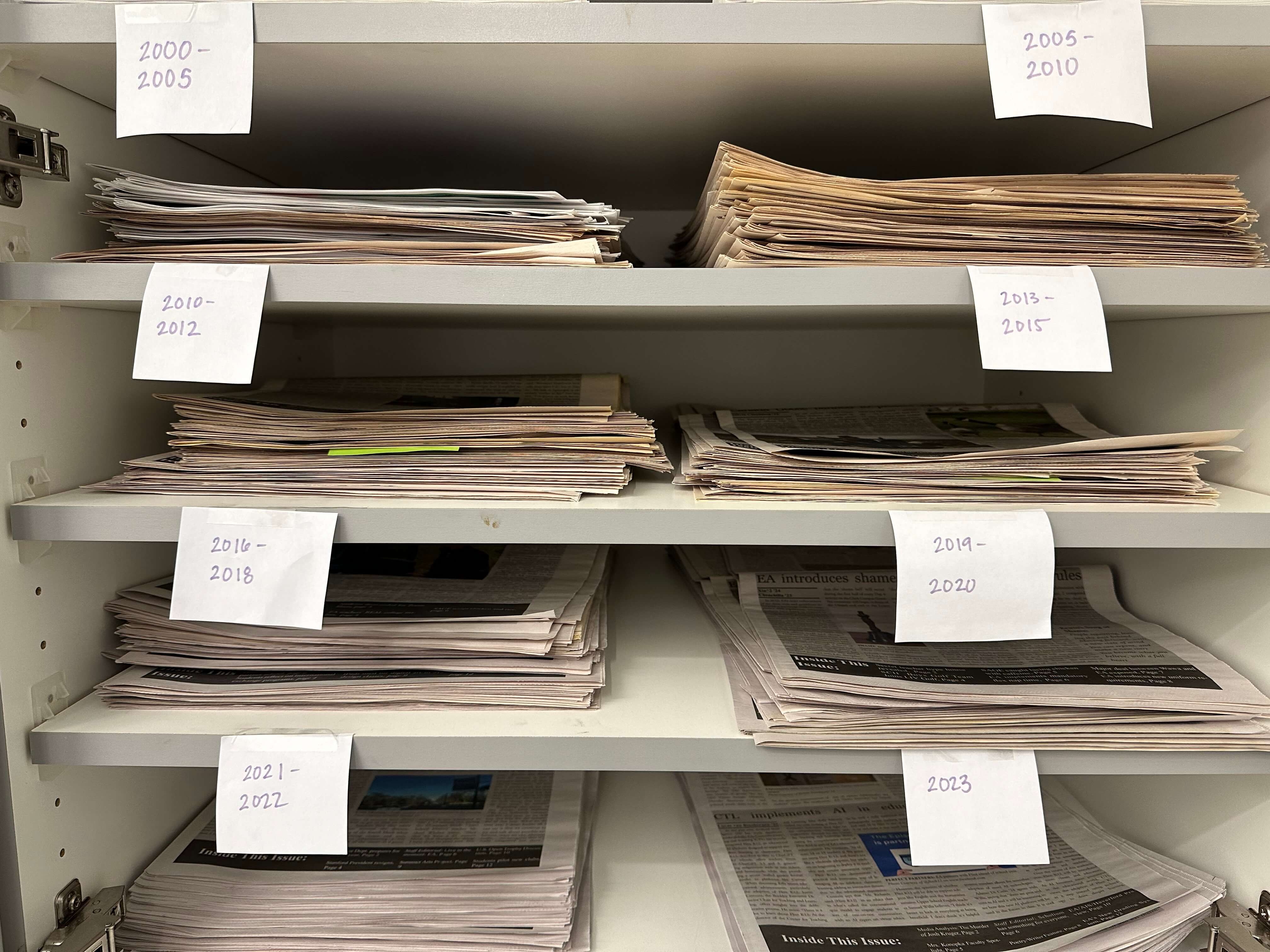Gavin Schmidt ’24 | Nayan Shankaran ’24
At Scholium, we serve the EA community. We pursue difficult conversations for a reason—to encourage growth. Knowing that this may complicate our jobs sometimes, we do what we do for you all. We only ask that you support us in our mission, so we can fulfill our duties for the community.
To gain an insight into how Scholium has progressed through the years, we reached out to past editors. We found that, at its core, Scholium’s mission has remained unchanged and that previous cohorts grappled with the same issues that we currently face. In the words of former News editor Mary Cipperman, EA ’21 and Harvard ’26, “Journalism is the bedrock of democracy, so it is imperative that students practice it.” Former Editor-in-Chief Cecilia Murphy, EA ’22 and UVA ’26, echoes Cipperman’s view of journalism: “I was so grateful for the fact that when I was [part of] Scholium, it truly was a student-led publication.” To ensure that all voices in the community are heard, we need to bring topics to light that affect every aspect of EA.
However, Cipperman continues, “Student journalists primarily publish in school-funded papers, which introduces biases and sometimes challenges. Administrative oversight can make significant critique difficult.”
Although Murphy adds that “we operated with a great degree of journalistic freedom… it gave us a sense of confidence and camaraderie in each other as the Scholium staff. There are not many opportunities at EA for students to voice opinions and be heard by faculty, administration, students, and the broader EA community [but] Scholium provides that platform,” she agrees with Cipperman. “I found the biggest difficulties pertaining to writing articles were the ones pertaining to any criticisms of the school coming from the student body,” she told us.
Given this, it is our responsibility to remain as objective as possible in our commentary in an effort to provide the unaltered truth. There is a fine line we have to navigate as journalists, especially with topics that can introduce some controversy, but providing honest, constructive pieces can mitigate this challenge. We represent the student voice, so it is crucial that we are able to express the concerns of our peers.
Since Scholium operates on behalf of EA, we sought to understand the true nature of the administration’s involvement in the paper. In our conversation with Head of the Upper School Michael Letts, he informed us, “We try not to interfere with what you guys want to write about. I think it’s a really good example of what you guys are able to accomplish just as students with your talents and your creativity.”

Photo courtesy of Nayan Shankaran ’24
While Letts tries to be laissez-faire, he occasionally steps in: “I try to stay out of it as much as I possibly can, but occasionally, there are times when we need to steer clear of privacy issues, which I feel are a bit different when dealing with students or kids. Sometimes, there’s sensitive information around other schools that I recall. And, occasionally, there are stories that are around really challenging issues—COVID was one—where we have to navigate these lines carefully because we are a community that has people with very different viewpoints.” Even so, Letts states that his involvement is “really rare” and that “the Scholium should feel free to wade into difficult topics.” Given that “sometimes we’re talking about topics where even the best professional journalists have a hard time navigating some of those things at times,” we need your backing when pursuing these topics.
Cipperman and Murphy provide sage parting advice. “I would advise student journalists to pursue the hardest stories. We need writers on the most controversial subjects, and in pursuing these challenges, journalists can develop their critical thinking, objective skill, and community impact,” Cipperman encourages.
Murphy asserts, “I think it is important that the students use Scholium for what it is, an opportunity to ‘facilitate ethical engagement.’ It should be used to inspire conversation amongst its readers at EA and the broader community. So, I would encourage the journalists to write about what they are passionate about and interested in to educate others and facilitate positive change.”
When we report on tough topics, remember that it is in EA’s best interest that we cover both the positive and negative. It is only then that we can improve and build resilience as a collective community. We hope that this can be an opportunity for reflection during the break, and we look forward to engaging with you in the second semester.